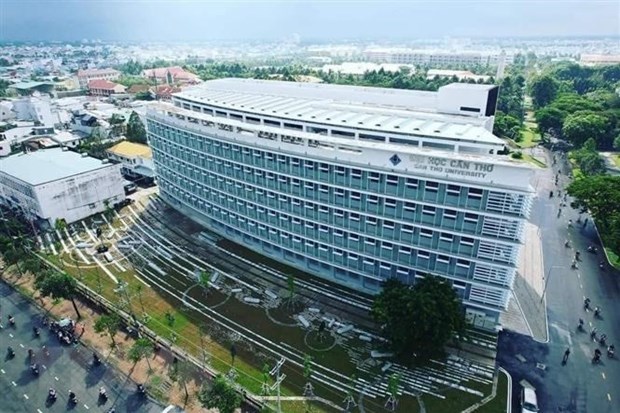Friendship, mutual trust drive Vietnam-Japan relations: Japanese Foreign Minister
Friendship and mutual trust based on people-to-people exchanges nurtured for many years have formed an impetus for the Vietnam - Japan relations, said Japanese Minister for Foreign Affairs Kamikawa Yoko.

Friendship and mutual trust based on people-to-people exchanges nurtured for many years have formed an impetus for the Vietnam - Japan relations, said Japanese Minister for Foreign Affairs Kamikawa Yoko.
She made the remark in a recent interview granted to the Vietnam News Agency on the occasion of the 50th anniversary of the two countries’ diplomatic ties (September 21, 1973 - 2023).
She said that over the last 50 years, the countries have developed relations in all fields thanks to tireless efforts by predecessors. One of the most important milestones of bilateral ties, which are now in their prime, was the elevation of relations to the “extensive strategic partnership” in 2014.
Since then, Japan and Vietnam have been building strategic connections in more areas, Kamikawa went on, adding that from focusing only on economic affairs like official development assistance (ODA) provision, bilateral cooperation has been fostered in such fields as security, energy, and human resources development in Vietnam, helping enhance mutual trust between the two countries.
The official noted that in this year, which marks the 50th anniversary of their diplomatic ties, the two countries have affirmed the intention to lift the “extensive strategic partnership” to a new level. Together with many celebratory events held in both countries, Crown Prince Akishino and his spouse will visit Vietnam, and the trip will further deepen the friendship and amity between both nations.
Kamikawa expressed her belief that 2023 will be an important landmark in the next 50 years of bilateral relations.
Suggesting measures for further developing bilateral connections, the Foreign Minister said Japan and Vietnam should particularly strengthen people-to-people exchanges, economic links, and cooperation in advanced areas.
In terms of people-to-people exchanges, they need to work closely together so that the about 500,000 Vietnamese people in Japan can play a more active role in the local society. When the numbers of Vietnamese people, restaurants, and groceries in Japan grow, opportunities for the two countries’ people to interact with each other have also increased, thus making Vietnam a familiar country with Japanese people.
Regarding economic links, it is important to create a favourable environment for private investments between the countries, the official remarked, saying she believes a ripe economic relationship means companies can conduct healthy economic activities in each other’s countries without the governments’ intervention.
Japanese enterprises will increasingly wish to invest in Vietnam. One necessary condition for economic relations to ripen is that the two governments coordinate with each other and create an investment climate helping secure mutual benefits for both sides, according to Kamikawa.
In addition, she also underlined the importance of enhancing cooperation in environment and clean energy to deal with such global issues as climate change, along with in aerospace and new technology sectors.
There remains much cooperation potential in these areas, she continued, voicing her belief that bilateral relations will become even stronger when cooperation is boosted in advanced areas.
During the interview, the minister said the international community is facing a historic turning point when geopolitical conflicts and global issues are growing increasingly serious. As maintaining and consolidating a free and open law-based international order becomes more and more important, the importance of Japan - Vietnam cooperation in the international arena and at multilateral forums is also rising accordingly.
It is of great significance for both countries to coordinate closely at international and multilateral forums to help secure peace and prosperity in the region and the world, including promoting the respect for law, navigation freedom, trade liberalisation, and regional connectivity, she added.

